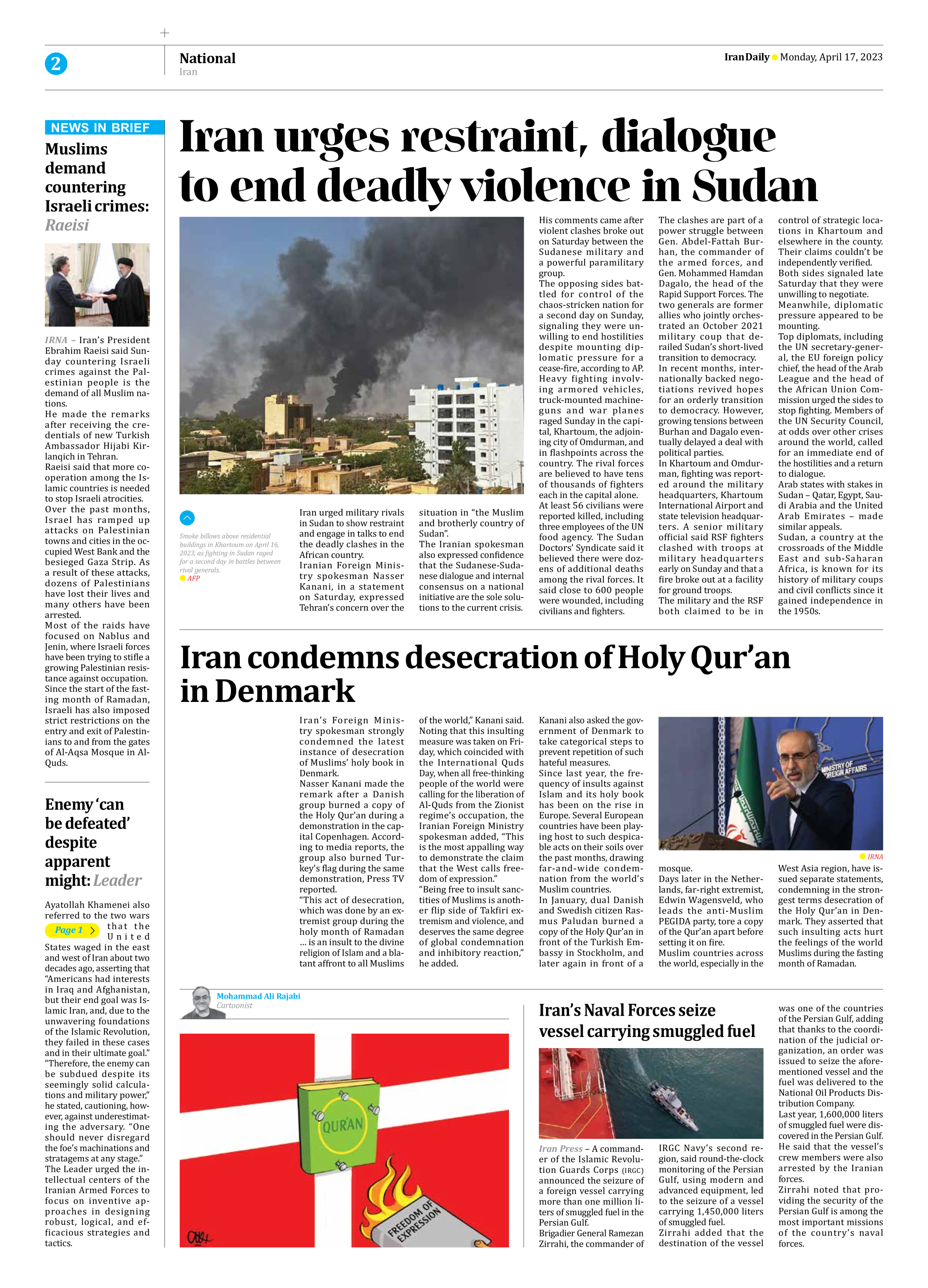
Iran urges restraint, dialogue to end deadly violence in Sudan
Iran urged military rivals in Sudan to show restraint and engage in talks to end the deadly clashes in the African country.
Iranian Foreign Ministry spokesman Nasser Kanani, in a statement on Saturday, expressed Tehran’s concern over the situation in “the Muslim and brotherly country of Sudan”.
The Iranian spokesman also expressed confidence that the Sudanese-Sudanese dialogue and internal consensus on a national initiative are the sole solutions to the current crisis.
His comments came after violent clashes broke out on Saturday between the Sudanese military and a powerful paramilitary group.
The opposing sides battled for control of the chaos-stricken nation for a second day on Sunday, signaling they were unwilling to end hostilities despite mounting diplomatic pressure for a cease-fire, according to AP.
Heavy fighting involving armored vehicles, truck-mounted machineguns and war planes raged Sunday in the capital, Khartoum, the adjoining city of Omdurman, and in flashpoints across the country. The rival forces are believed to have tens of thousands of fighters each in the capital alone.
At least 56 civilians were reported killed, including three employees of the UN food agency. The Sudan Doctors’ Syndicate said it believed there were dozens of additional deaths among the rival forces. It said close to 600 people were wounded, including civilians and fighters.
The clashes are part of a power struggle between Gen. Abdel-Fattah Burhan, the commander of the armed forces, and Gen. Mohammed Hamdan Dagalo, the head of the Rapid Support Forces. The two generals are former allies who jointly orchestrated an October 2021 military coup that derailed Sudan’s short-lived transition to democracy.
In recent months, internationally backed negotiations revived hopes for an orderly transition to democracy. However, growing tensions between Burhan and Dagalo eventually delayed a deal with political parties.
In Khartoum and Omdurman, fighting was reported around the military headquarters, Khartoum International Airport and state television headquarters. A senior military official said RSF fighters clashed with troops at military headquarters early on Sunday and that a fire broke out at a facility for ground troops.
The military and the RSF both claimed to be in control of strategic locations in Khartoum and elsewhere in the county. Their claims couldn’t be independently verified.
Both sides signaled late Saturday that they were unwilling to negotiate.
Meanwhile, diplomatic pressure appeared to be mounting.
Top diplomats, including the UN secretary-general, the EU foreign policy chief, the head of the Arab League and the head of the African Union Commission urged the sides to stop fighting. Members of the UN Security Council, at odds over other crises around the world, called for an immediate end of the hostilities and a return to dialogue.
Arab states with stakes in Sudan – Qatar, Egypt, Saudi Arabia and the United Arab Emirates – made similar appeals.
Sudan, a country at the crossroads of the Middle East and sub-Saharan Africa, is known for its history of military coups and civil conflicts since it gained independence in the 1950s.







